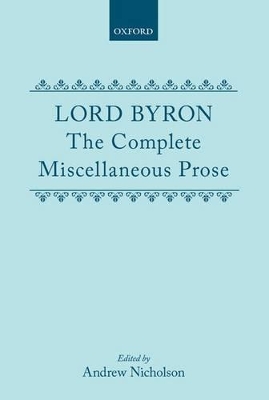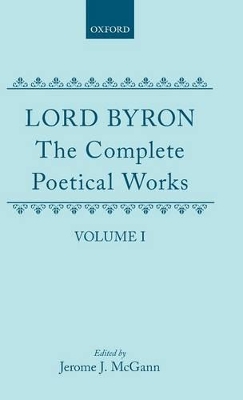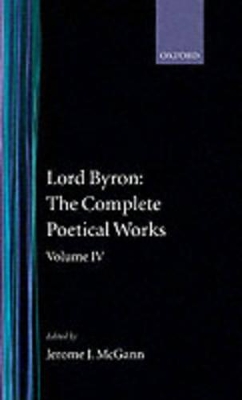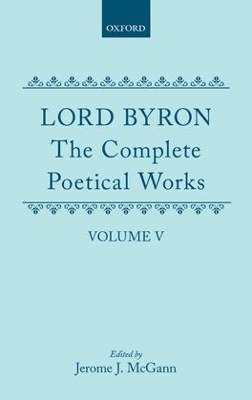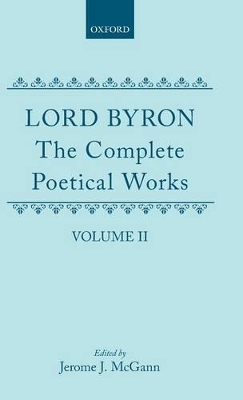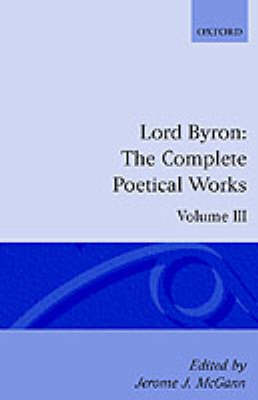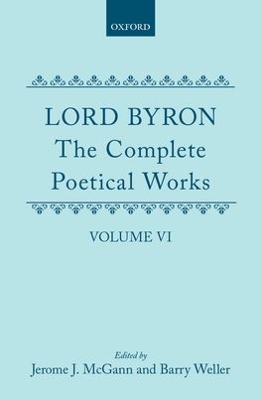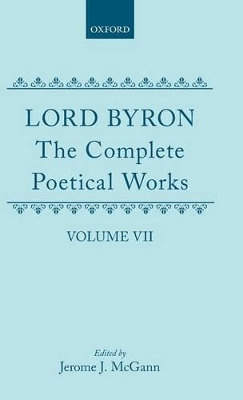Oxford English Texts
8 total works
published for the first time.
For the first time too, the prose works are presented with full scholarly apparatus. The texts are reproduced from their original manuscripts wherever these are still extant; and the notes provide an introduction to each item, detailing the circumstances of its composition, its publication history, and its historical and literary background, as well as providing comprehensive annotation of individual points of obscurity, allusions, and other matters of content.
The Complete Poetical Works Volume 3
An important feature of this volume is its set of appendices dealing with the corpus of Byron's work. Of special signficance are those detailing all relevant information about attributed and spurious Byron poems. This material is important not only for establishing a reliable corpus of the work, but also as a fundamental resource for the study of the Byron legend. Included here are the texts of newly authenticated poems and of attributed poems which have some reasonable claim to authenticity, as well as a list of unauthentic poems. The latter augments the list given in Volume I of this edition. This material is followed by a discussion of Byron forgeries; and a list of corrections and additions to Volumes I-V.
This volume also contains comprehensive indexes of titles, of first lines, and of all the poems by volume and page number, and a general index.
